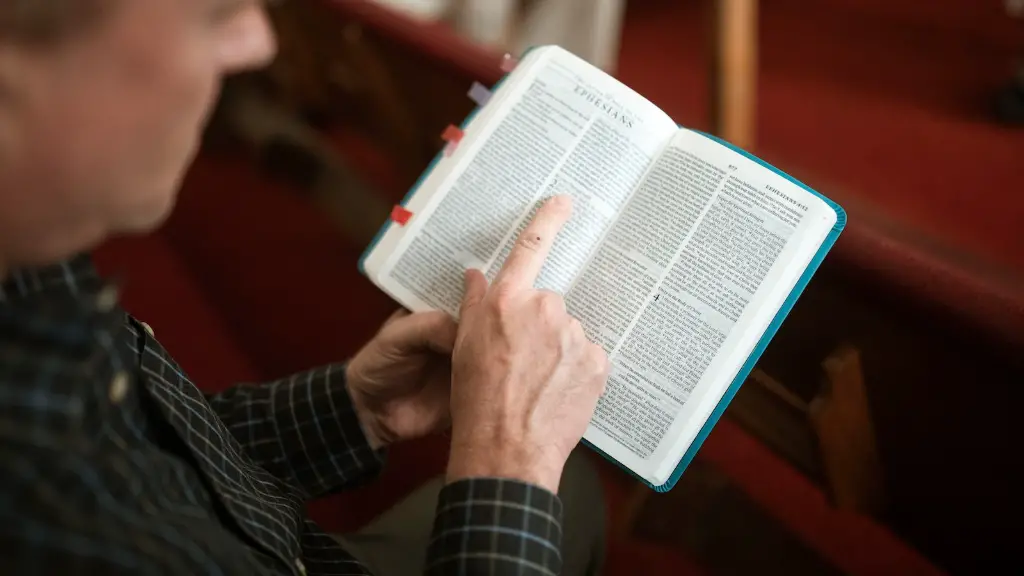Moses was one of the most important figures in the Bible. He is known for leading the Israelites out of Egypt, receiving the Ten Commandments, and writing the first five books of the Bible. But how did Moses die in the Bible?
The Bible tells us in the book of Deuteronomy that after Moses’s death, no prophet like him ever arose in Israel. “There has not arisen a prophet since in Israel like Moses, whom the Lord knew face to face” (Deuteronomy 34:10).
Moses’ death is not recorded in the Bible, but the book of Deuteronomy does record his final words and blessings to the Israelites before his death. In Deuteronomy 34:5-7, Moses is described as being 120 years old and very healthy. He then ascended Mount Nebo, where he saw the Promised Land in the distance.
Moses’s death soon followed, although the exact cause is unknown. One popular tradition suggests that God took Moses’s life by having him fall asleep in His arms. According to Jewish midrash, Moses remained in the presence of God until God buried him in an unknown location on the slopes of Mount Nebo.
Some theologians suggest that Moses may have died of a broken heart. After forty years of guiding the Israelites in the wilderness, they had still not entered the Promised Land. Moses had served the Lord faithfully and led the Israelites as best he could, but seeing them rebel against God was too much for him to bear.
Others suggest that Moses endured for so long due to his closeness to God. He was considered an “anointed one” whose leadership was divinely inspired. Until his death, he remained an example of righteousness and humility. His life is known to have been filled with both human emotion and divine action.
Moses’ Legacy
Moses’ legacy lives on through the Ten Commandments which he received on Mount Sinai. The Decalogue is still used as a moral code today, and it is believed to apply universally to all people of faith. In addition, Moses’ writings are still used to guide people’s everyday lives. Through his teachings, Moses provided a blueprint for how humans should relate to God, each other, and the world around them.
Many religious traditions venerate Moses as a prophet and saint. He is mentioned more than any other person in the Hebrew Bible, and his name is still invoked in prayers today. In Christianity, his name is often associated with Jesus in the New Testament. Jesus is described as a “prophet like Moses”, which suggests that the two are alike in character.
Moses is also remembered as a symbol of liberation, having rescued the Israelites from slavery in Egypt. He is seen as a figure of strength and courage, having defied Pharaoh in the name of God. Throughout history, Moses has served as an inspiration to people of all faiths.
Theological Debates On Moses’ Death
Though the exact cause of Moses’ death remains a mystery, theologians have long debated its implications. Some believe that Moses’ death was a metaphor for the end of his reign as leader of the Israelites. Others suggest that his death was a sign that all prophets eventually face death, no matter how holy their life may be.
The book of Deuteronomy is often seen as a farewell speech from Moses, as it is his last words to the Israelites before his death. In it, Moses warns the people of the consequences of following idols and living by their own desires. At the same time, he encourages them to remain faithful to God and trust in His promises.
Other scholars contend that Moses’ death can be interpreted as a punishment for his disobedience. Moses had been denied entrance to the Promised Land due to his disobedience at Meribah, and some believe that God chose to end his life as a sign of judgment. In this interpretation, God’s mercy is seen in providing Moses with an honorable death rather than a life of hardship in the wilderness.
Modern Interpretations Of Moses’ Death
Today, the debate surrounding Moses’ death is still ongoing. Many people view him as a divinely appointed leader, endowed with a special calling from God. Though his life was characterized by faithfulness and obedience, some believe that he was subject to human frailty and punishment.
Most agree that Moses’ legacy should be understood in the context of his many accomplishments. He prophesied and wrote Scripture, liberated an enslaved people, and most importantly, gave the world the Ten Commandments. These teachings were so influential, they remain the basis for today’s religious and moral values.
Regardless of how one interprets Moses’ death, it is clear that he has left an indelible mark in both the pages of Scripture and the hearts of many people. His life was a testament to faithfulness and obedience, a source of inspiration, and a witness to the enduring power of God.
Historical Accounts Of Moses’ Death
Though there is no recorded account of Moses’ death in the Bible, there is evidence outside of Scripture that suggest that his death occurred on Mount Nebo. According to Josephus, a first-century Jewish historian, a serpent had bitten Moses and the venom caused his death. In the Samaritan Pentateuch, God is described as taking his life. In both of these historical documents, Moses is said to have died on the summit of Mount Nebo.
Elsewhere, in the Targum pseudo-Jonathan and the Babylonian Talmud, Moses’ death is said to have occurred as a result of God’s wrath after Moses smote a rock instead of speaking to it. One interpretation of this is that since Moses struck the rock with his staff it symbolically represented striking God, who is the Rock of Israel. It has also been suggested that this act of disobedience caused God to take his life.
In Arab culture, Moses is said to have been buried atop Mount Nebo. According to local tradition, his grave is located near a Tomb of Moses Shrines (Musall Al-Nabi Mousa). This shrine is said to be the burial site of Moses and is currently a popular pilgrimage destination.
Archaeological Findings Of Moses’ Death
If the traditional accounts of Moses’ death are true, there should be evidence in the archaeological record. To date, no archaeological evidence has been found to corroborate his death on Mount Nebo. However, recent excavations have unearthed artifacts suggesting that the region was inhabited by ancient Israelites between the 13th and 15th centuries BC. It is possible that during this time, ancient Israelites worshipped a figure later identified as Moses
In addition, archaeologists have discovered ancient tombs in the vicinity of Mount Nebo. These tombs may have been home to Moses and his descendants. These findings are interesting, as they may prove that Moses actually died and was buried there.
Though the exact cause of Moses’ death is still unknown, these archaeological findings provide intriguing clues about his life and legacy. Regardless of how one interprets Moses’ death, it is clear that he has left an indelible mark on both the pages of Scripture and the hearts of many people.





